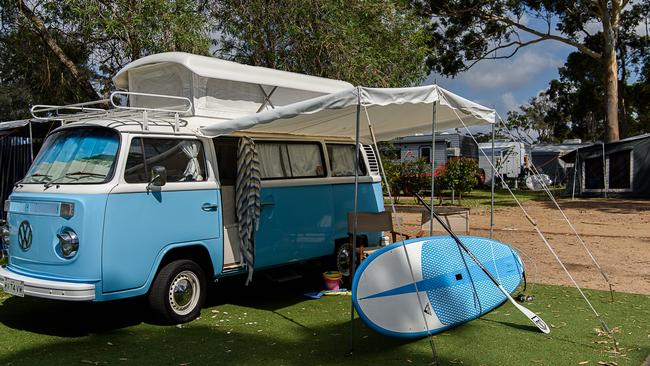Money technology tricks that can deliver you extra dollars
Try these financial technologies if you want to save cash, reduce bills and invest wisely. It can be as simple as spending half an hour on the internet.
SmartDaily
Don't miss out on the headlines from SmartDaily. Followed categories will be added to My News.
- The big money questions that Aussies are asking
- How to work out what life insurance you need to protect your family
Technology has transformed our social lives, entertainment and education, and is now having a good crack at changing our finances.
A boom in apps, platforms, smart devices and bright ideas has meant modern money tech can save people thousands of dollars each year.
The co-founder of app GetReminded, Tim Nicholas, says Australians spend an average $14,000 a year on household services such as mobile phones, insurance, energy, streaming services, internet and pets.
“There is so much tech available now to make saving money easy,” he says.
Vehicle-sharing platform Car Next Door’s CEO, Will Davies, says the cost of living is rising faster than wages, and clawing back a little cash from regular expenses can make a big difference to your bottom line.

“Some tech trends not only make life easier, but cut back on some of the biggest weekly bills,” he says.
Here’s a taste of technology that can save or earn you cash.
ROUNDING UP SAVINGS
A growing group of apps and financial institutions will round up your everyday spending on debit and credit cards to the nearest $1 or $5 and shift the money to a savings account, investment or mortgage.
These small increments will grow into big numbers over time, and companies offering this service include ING, Beyond Bank Australia, digital bank Up and investment app Raiz.
WEB-WISE
Look no further than the trusty internet for a huge range of free tools to help you keep on top of your finances.
You can calculate how much your superannuation nest egg should grow to, what insurance cover you need, how compound interest can grow your wealth, or balance your household budget.

Find the best deal on anything from home loans and credit cards to savings accounts and insurance using comparison websites. But be sure to check more than one site, as they have different deals with different providers.
SHARING CARS AND MORE
Davies says peer-to-peer car sharing platforms such as Car Next Door can deliver income to offset car expenses such as insurance and registration.
“The average car can actually bring in money – with most owners earning between $3500 and $7000 a year, and some vans bringing in up to $10,000 a year,” he says.
Consumers can also earn cash from sharing caravans and camper trailers through Camplify.com.au, clothes through Thevolte.com, and storage space through spacer.com.au.

INSURANCE DISCOUNTS
While on the topic of wheels, insurance companies such as ubicar.com.au can deliver hundreds of dollars of savings each year to customers who download its app that tracks how well they drive.
It’s Big Brother in the back seat.
SMART STUFF
Control your heating and cooling costs by using smart thermostats that learn your routine and adjust temperatures to suit. Smart appliances are becoming more common – including family hubs and fridges that give you an appliance-eye view of your groceries while you’re shopping.
Nicholas says smart plugs can help keep power bills down.
“Basically, the smarter your home is, the better off you’ll be financially,” he says.
PHONES ARE FINANCIAL FRIENDS
Smartphones can quickly turn unwanted goods into cash using your phone camera and apps such as ebay, Gumtree or Facebook Marketplace.
And the big data allowances now included in phone contracts may mean some people no longer require home internet.
But don’t let complacency about phone costs cause you to lose money unnecessarily.
“People are locked into contracts when they purchase a new mobile handset and often continue to pay the same amount even after the contract has ended,” Nicholas says.
“Shopping around for a better deal cannot only save you money but also increase your data allowance.”

